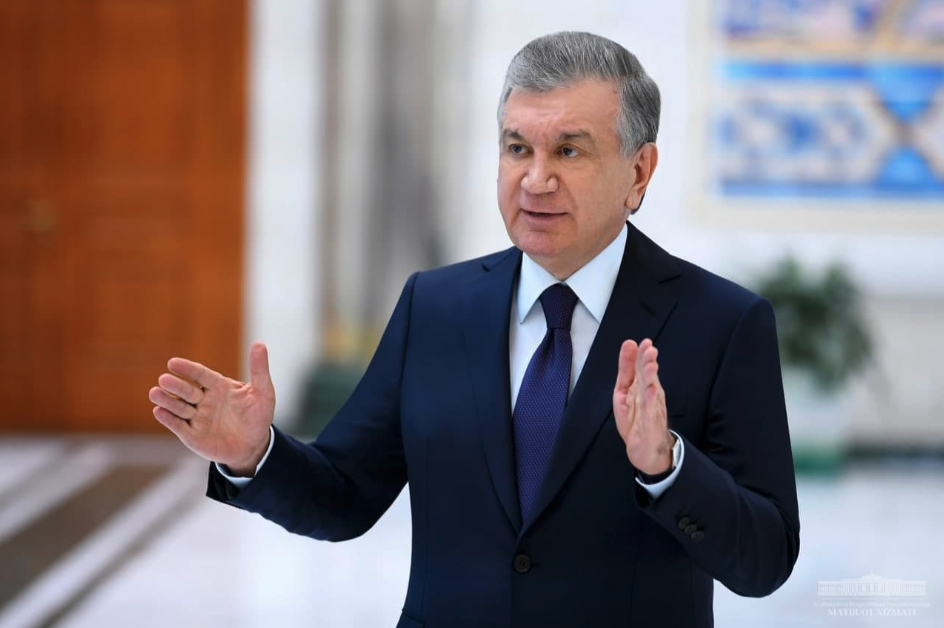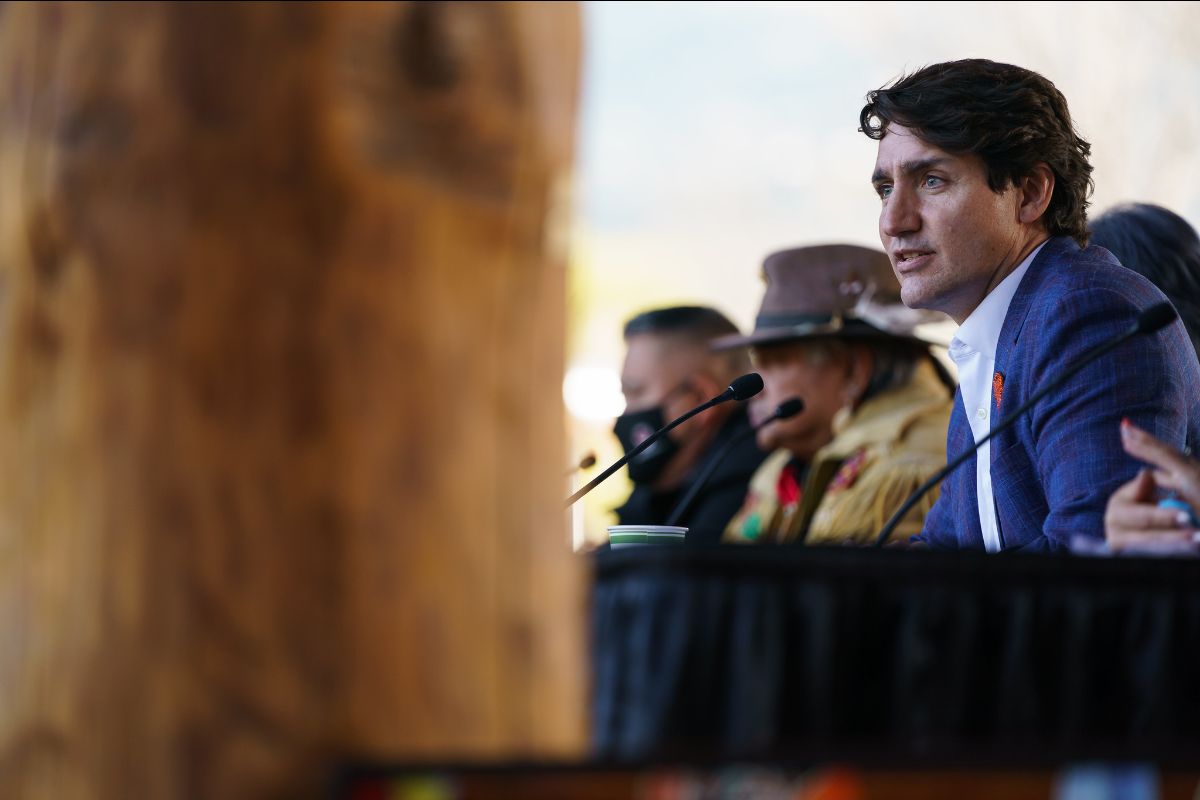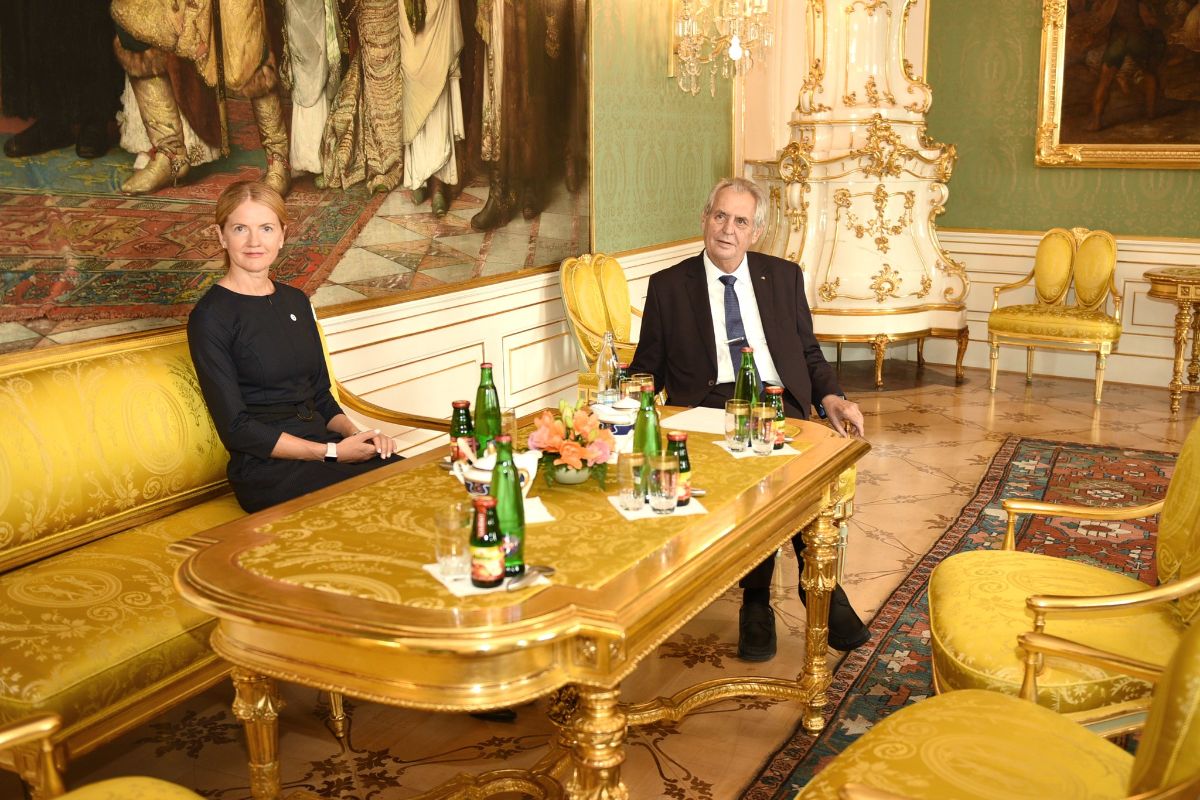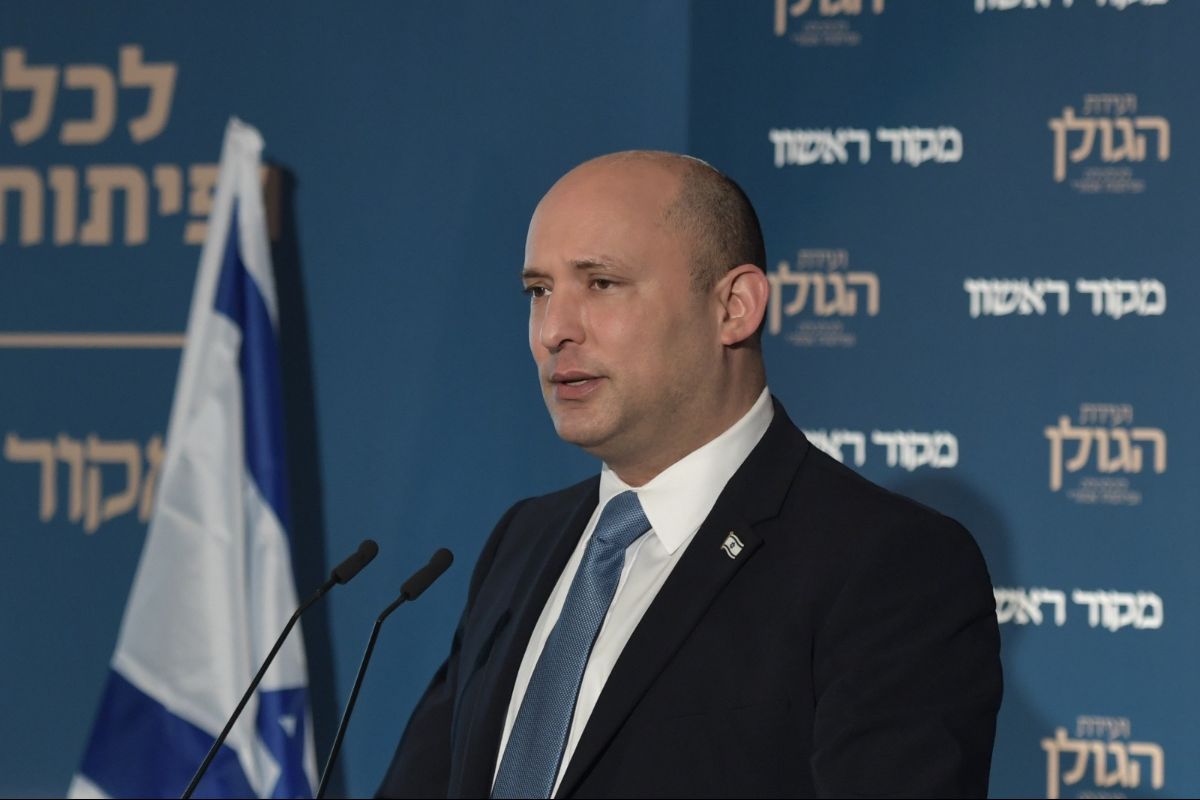Top photo: Israeli Prime Minister Naftali Bennett speaks at the Golan Heights Economic & Regional Development Conference on Oct. 11 in Hispin. (Photo: Prime Minister of Israel / Twitter)
Welcome to Factal Forecast, a look at the week’s biggest stories and what they mean from the editors at Factal. We publish our forward-looking note each Thursday to help you get a jump-start on the week ahead. If you like what you see, you can subscribe for free.
A look ahead:
Oct. 22/ Israeli prime minister visits Russia: On Friday, newly sworn-in Israeli Prime Minister Naftali Bennett will meet in Sochi, Russia, with President Vladimir Putin for the first time as head of government.
- What’s happened so far: Bennett was elected in June, ousting Benjamin Netanyahu with a broad coalition and by a narrow margin. Netanyahu frequently met with Putin during his 12-year tenure as prime minister, developing close diplomatic relations between the countries over regional security issues.
- The impact: Putin and Bennett are expected to discuss an array of political, security and economic issues, including Iran’s nuclear program and the conflict in Syria. Israel recently announced it is allowing Russians vaccinated with the Sputnik V shot to enter the country over the next two months in an apparent bid to support international recognition for the Russian vaccine.
Oct. 23/ 10th anniversary of Libyan liberation: Saturday marks a decade since Libya was declared liberated after dictator Muammar Gaddafi was killed by rebel groups. The country is under a ceasefire, but presidential elections in December threaten to disrupt the fragile peace.
- What’s happened so far: Following the Arab Spring uprisings in Tunisia and Egypt, conflict broke out in Libya in February 2011 between Gaddafi and a coalition of pro-democracy militias. The eight-month civil war ended shortly after Gaddafi’s death, but the country rapidly descended into a second conflict in 2014 due to deepening ideological divisions. The UN brokered a ceasefire between the internationally backed government and Colonel Khalifa Haftar’s forces in October 2020. Since then, an interim government led by Prime Minister Abdul Hamid Dbeibah has been preparing for presidential elections scheduled for Dec. 24.
- The impact: Recent wrangling over legal mechanisms has thrown the elections into doubt. Analysts are concerned that the election of a polarizing figure, such as Haftar or Gaddafi’s son Seif al-Islam, could deepen societal divisions and lead again to warring governments both claiming legitimacy. Voters increasingly view Gaddafi’s reign as a time of fewer freedoms but increased prosperity, as a decade of war severely damaged infrastructure and led to frequent power cuts while foreign powers grappled over control of Libya’s oil wealth.

(Photo: Uzbekistani Presidency)
Oct. 24/ Uzbekistan presidential elections: Uzbek citizens will head to polls Sunday to vote for a president in the country’s first election since incumbent President Shavkat Mirziyoyev was appointed in September 2016.
- What’s happened so far: All five political parties — the Ecological, National Revival Democratic, Liberal Democratic, People’s Democratic and Justice Social Democratic — have registered candidates for the election, but incumbent Mirziyoyev of the Liberal Democratic Party is expected to win in a landslide. Uzbekistan has received international recognition for improvements in its authoritative governments since the 2016 death of former President Islam Karimov, who ruled the nation and its predecessor state since 1989. There is little room, however, for any meaningful political opposition in the country. Virtually no new political parties were registered in the polls during the 2019 parliamentary elections despite the government’s “New Uzbekistan-New Elections” tagline.
- The impact: Despite claims of commitment to a pro-democracy election, the Uzbek government prevented two candidates from running through independent, unregistered parties. Russia, meanwhile, recently praised President Mirziyoyev for development of Russian-Uzbek relations, including the strengthening of the Russian language in the country.
Oct. 26/ Norway hosts meeting of Barents Council: This year’s Barents Euro-Arctic Council ministerial meeting will be held in Tromsø, Norway, on Tuesday in what will be the end of Norway’s chairmanship.
- What’s happened so far: Sweden hosted the last meeting in Umeå in 2019 before passing the chairmanship to Norway, which was in charge to lead the council during the pandemic. Foreign ministers from Beac member states Denmark, Finland, Iceland, Russia and Sweden have been invited to the biennial meeting, as well as the EU high representative for foreign affairs and security. According to the event’s schedule, ministers will discuss several issues, including climate change, financial mechanisms and health and social issues.
- The impact: The meeting will be hosted by Norway’s newly-elected Foreign Minister Anniken Huitfeldt. At the event, Norway will pass the chairmanship of the council to Finland. Norway said it intends to maintain a “high level of activity” throughout the final phase of its leadership, hosting several meetings to discuss further cooperation on transport and forestry in the Barents region. The meeting will come one week after Russia broke ties with NATO after the military alliance expelled eight members of its mission.

(Photo: Justin Trudeau / Flickr)
Oct. 26/ Canada’s Trudeau shuffles cabinet: Canadian Prime Minister Justin Trudeau plans to reshuffle his cabinet Tuesday following last month’s snap election.
- What’s happened so far: Trudeau was re-elected to a third term on Sept. 20 after calling for snap parliamentary elections with the apparent goal of his Liberal Party taking back control of the House of Commons. While Trudeau won, his party failed to secure an outright majority. Still, Trudeau said voters gave his party a “clear mandate to get Canada through this pandemic.”
- The impact: Trudeau, who vowed to keep his cabinet gender balanced, is expected to make significant changes in order to keep that promise. Three female ministers lost in the recent election and a fourth didn’t seek re-election. Additionally, Trudeau said Parliament will return on Nov. 22, more than two months after his re-election. That gap has led some critics to argue that time is being wasted amid a fourth wave of coronavirus. Canadian health officials worry that while coronavirus cases are trending down and vaccinations are up, a bad flu season could place additional pressure on the health care system. Canada’s vaccine mandate for federally regulated transportation employees and travelers goes into effect Oct. 30.
Oct. 26/ ASEAN holds summit in Brunei:The Association of Southeast Asian Nations (ASEAN) will hold its bi-annual three-day summit beginning Tuesday. The summit will be held virtually and chaired by this year’s host, Brunei.
- What’s happened so far: Prior to the main summit, all ASEAN ministers, including those in charge of health tourism and economic portfolios, held meetings and submitted reports to the bloc’s secretary general. In addition, ASEAN foreign ministers on Oct. 16 decided to invite a non-political representative from Myanmar, sidelining the country’s junta leader in the bloc’s strongest rebuke yet since the Feb. 1 military takeover ousted the civilian government.
- The impact: Post-coronavirus recovery is expected to take center stage during the summit, with Brunei Foreign Minister Datuk Saifuddin Abdullah saying topics will include a potential travel bubble, border reopening, mutual recognition of vaccine certificates and other efforts to encourage travel within Southeast Asia.
Oct. 27/ Afghanistan conference: Iran is set to host a meeting Wednesday of foreign ministers representing the six countries that border Afghanistan, plus Russia, in an effort to stabilize the landlocked central Asian nation after the Taliban’s seizure of power from the U.S.-backed government in July.
- What’s happened so far: Battered by decades of war and isolated by international sanctions, Afghanistan’s economy is in the midst of a downward spiral marked by high inflation and shortages of foreign currency and basic goods. The Taliban are reaching out to countries such as Turkey, Iran, Russia and China to boost investment and humanitarian aid, though inflows haven’t been enough to meet demand.
- The impact: The one-day conference will bring together top diplomats of Iran, Russia, China, Pakistan, Turkmenistan, Uzbekistan and Tajikistan. All are countries vying for influence and protection of their respective interests while negotiating with a Taliban side that has yet to prove it’s capable of building consensus or governing the country of 39 million people. Iran’s foreign ministry said participants will discuss the formation of an “inclusive” government in Afghanistan “that will involve all ethnicities.”
Oct. 28/ Volvo IPO: Volvo aims to hit a $23.1 billion market value when it debuts on the Stockholm stock exchangeThursday in a move that marks another key milestone in the company’s recovery since 2010.
- What’s happened so far: Volvo went from suffering losses under Ford to making a healthy profit in the last 12 months to June. The Swedish carmaker warned that the Chinese company Geely, which acquired the company from Ford, would remain the largest shareholder following the IPO later this month. The announcement comes after Geely pulled out of a planned listing for Volvo in 2018 due to international trade disagreements and fears that the company had been overvalued.
- The impact: Experts predict the company will be particularly attractive to investors now that it co-owns the electric carmaker Polestar. The IPO will enable Volvo to draw from a wider range of investors and help it fund its plan to go all electric by 2030. The final IPO price will be announced on Wednesday, along with a separate IPO from electric car manufacturer Polestar, which is set to go public next year.

(Photo: Estonian Foreign Ministry)
What else matters:
Czech political crisis: On Monday, the president of the Czech Republic’s Senate announced that doctors treating hospitalized President Miloš Zeman had determined he was physically incapable of performing his official duties, providing the first real glimpse into the seriousness of the president’s condition. With the president unlikely to return to work in the immediate future, the senate is expected to attempt to take the extraordinary measure of transferring his constitutional power to Prime Minister Andrej Babiš. Police on Tuesday also launched an investigation into possible “crimes against the republic” after reports that the president’s top aide obfuscated the severeness of the president’s condition and forged his signature on a document instructing leading lawmakers to bring parliament into session Nov. 8.
- Watch for: Complicating matters is that the president is currently tasked with appointing a new government after his prime minister’s party lost to an opposition coalition on Oct. 9. Due to the situation, Senate leaders will meet with leaders of the Czech lower house to discuss temporarily relieving the president of his duties, which both houses need to agree to do. Any vote to do so will likely come after Nov. 8, when the newly elected lower house first meets.
Haiti kidnapping: Brazen crimes continue to increase in Haiti following months of political instability and civil unrest. On Saturday, the powerful “400 Mawozo” gang kidnapped 17 North American missionaries, five of them children under the age of 16, outside of Port-au-Prince. Gang members have demanded a million dollars for each person’s return. The gang has been growing in strength over the past three years and has essentially taken over the suburb of Croix des Bouquets. Haitian police and the FBI are helping negotiations with the gang for the missionaries’ safe release.
- Watch for: Once notorious for stealing cattle and cars, the 400 Mawozo gang is now believed to be responsible for many of the 628 kidnappings that have been recorded in the country since the beginning of this year. Those kidnappings increased significantly since the summer, following the assassination of President Jovenel Moïse and a deadly earthquake. If the country’s instability continues to worsen and the kidnappings continue to pay off, more gangs may try to replicate the practice.
Extended outlook: What’s on our radar in the coming weeks
Oct. 21: Serbia-Kosovo talks in Brussels; European Council meeting
Oct. 22: Israeli Prime Minister Naftali Bennett visits Russia; Russia-led security bloc to hold military drills near Afghan border
Oct. 23: Rugby League World Cup in England; 10th anniversary of declaration of Libya’s Liberation
Oct. 24: Uzbek presidential election
Oct. 25: Trial of Metropolitan police officer charged with kidnap and murder of Sarah Everard
Oct. 26: ASEAN Summit in Brunei; Canadian PM shuffles cabinet; Norway to host meeting of Barents Council
Oct. 27: Iran hosts summit for Afghanistan neighbors
Oct. 28: Volvo IPO
Oct. 30: G20 summit in Rome
Oct. 31: Planned launch of James Webb Space Telescope; Japan general election
Nov. 1: U.S. to allow fully vaccinated travelers from Canada and Mexico; South Africa local government elections; UN Climate Change Conference
Nov. 2: Virginia and New Jersey gubernatorial and Ohio congressional special elections
Nov. 3: Nordic Council summit in Copenhagen, Denmark
Nov. 5: China International Import Expo in Shanghai
Nov. 7: Nicaraguan general election; Daylight saving time ends in most of Canada and the U.S.
Nov. 8: China’s Communist Party holds sixth plenum
Nov. 14: Bulgaria presidential election; Argentine legislative elections
Nov. 17: Gulf of Mexico oil and gas auction
Nov. 20: 89th General Assembly of Interpol in Istanbul

